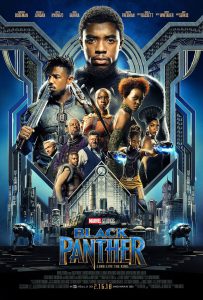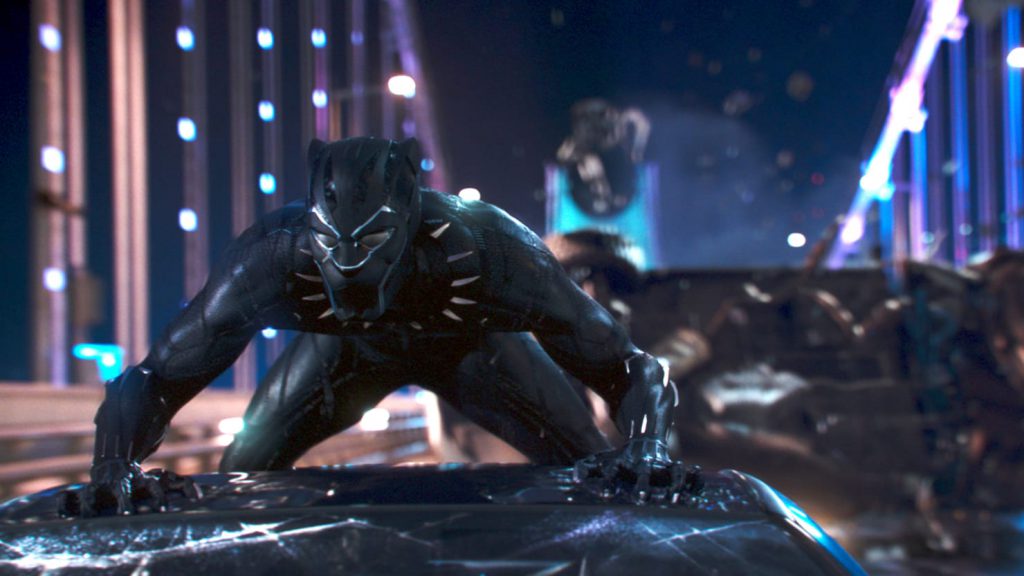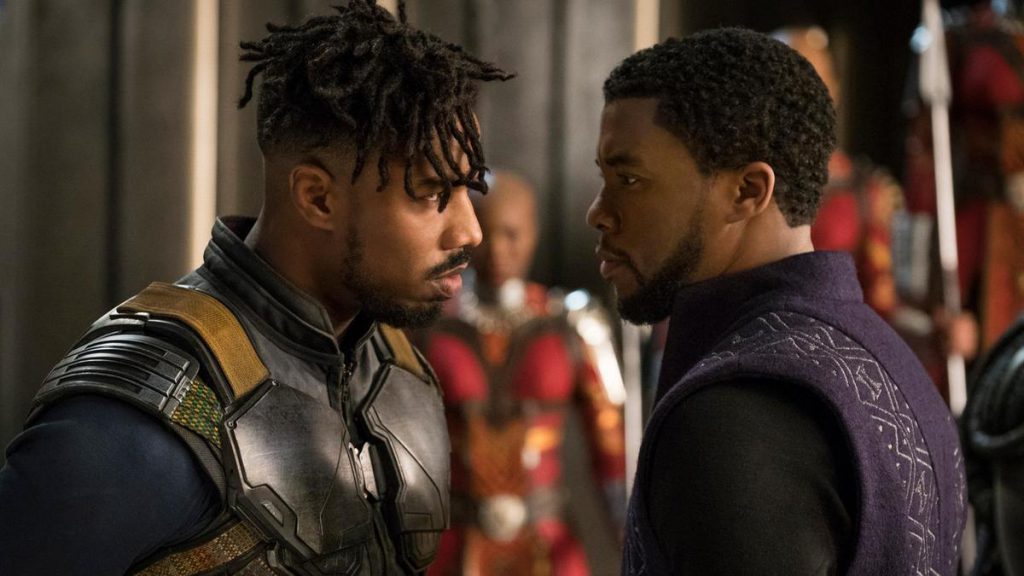 Black Panther, the 18th entry in the Marvel Cinematic Universe, presents the long awaited (and highly politicized) debut of a black-led superhero film in the series. Despite many shortsighted members of the media heralding it as the first of its kind, it is categorically the best (to be fair, Wesley Snipes’ Blade did prefer to remain in the shadows).
Black Panther, the 18th entry in the Marvel Cinematic Universe, presents the long awaited (and highly politicized) debut of a black-led superhero film in the series. Despite many shortsighted members of the media heralding it as the first of its kind, it is categorically the best (to be fair, Wesley Snipes’ Blade did prefer to remain in the shadows).
Living in a time when even soda pop commercials are crafted and/or scrutinized for their political angles, it is to be expected that the release of the film has been flooded with controversy and ideological showboating. The irony is that while extremes on both sides of the political aisle duke it out online, they blindly miss the positive, hopeful themes that underlie the core of the film – themes that have significance to all (them most of all). In fact, Black Panther serves as an exemplar instance of a film that doles out an opportune message without a patronizing method of delivery.
Following the tragic events of Captain America: Civil War, Prince T’Challa (Chadwick Boseman) returns home to be coronated King of Wakanda – a technological utopia in the heart of Africa hidden from the outside world. A good man imbued with the mystical strength of the Black Panther, he strives to follow his late father’s (John Kani) footsteps as a beacon to his people; but, when a mysterious figure nicknamed Killmonger (Michael B. Jordan) challenges him to the throne, T’Challa discovers the grimmer aspects of rulership and the perils of past sin.

Make no mistake, Black Panther is top tier Marvel but it is not without its flaws. Much of its action is dark, chaotic, and over-stylized, neutering a great deal of impact (one can only follow so much when presented with two characters in black cat suits battling it out in a dark-lit, green screen animated underground setting). Faring better are two gripping superpower-less one-on-one matches that close the first and second acts. Colorful, raw, and emotionally charged, these scenes impart an intensity lacking during the hero’s regular super-suit pursuits.
Perhaps one of the biggest blunders is a mid-credit stinger that should have served as the film’s closing scene as it summarily wraps up the story, character arcs, and (above all) thematic points of the film! Yes, while many Marvel acolytes have come to expect mid-credit and after-credit Easter eggs, Black Panther by its very nature has attracted an audience that is unaware of this trope. To throw away such a scene in the credits as an afterthought is a disappointing error in judgement (80% of my audience missed it).
These missteps do not, however, outflank many of the film’s positive attributes. Boseman transcends his already stellar turn in Captain America with a performance worthy of the character’s regal roots. Joining him in their own sophomore appearances are Martin Freeman, whose role is significantly expanded from his minute introduction in Civil War, and the ever reliable Andy Serkis (a character that originally debuted in Avengers: Age of Ultron). Lupita Nyong’o (Star Wars: The Last Jedi) and Danai Gurira erupt as steadfast players in their own right with Letitia Wright, playing T’Challa’s genius teenage sister, providing Black Panther‘s equivalent to 007‘s Q.
It has (rightfully) been argued that the MCU’s villains represent the weakest facets of their respective films with few exceptions. Black Panther not only rectifies this deficiency but tenably unveils its most compelling one yet with Michael B. Jordan. Matching the moral ambiguity of Thor‘s Loki and Spider-Man‘s Vulture plus a dangerous physical flare, Jordan makes for an imposing, empathetic figure. Opposite Boseman, it is not a stretch to declare that their scenes sans Panther suits are far more engrossing than their comic book action clashes.

Akin to stronger MCU entries such as Captain America: The Winter Soldier and the original Iron Man, Black Panther exhibits a pertinent story. In these respects, director/co-writer Ryan Coogler (Creed) establishes the film’s most compelling quality in the ideological clash between its two leads. It’s a strength that could have easily wavered into a pandering, self-righteous approach in lesser hands but Coogler excels at the challenge. One example would be the advantages and disadvantages of Wakanda’s isolationism. Does it share responsibility in the blood shed by ruthless colonialists due to its blind eye approach to the affairs of the world (or, worse still, its neighbors) to maintain a safe space? What would the cost or proper advance be should its existence be revealed? Armed retribution, open vulnerability, or the most difficult feat of all: an example for peace? What should its roll be concerning international racism?
Coogler doesn’t shy away from the topics at hand and, to his credit, provides some of the very answers the most radical voices need to hear. Both those that despise the race of its cast or, on the other end, those that savage anyone with a dissenting thought about the film should take a more discerning note of its encouraging message. Black Panther isn’t the “masterpiece” that some may be wishing it to be; rather, it’s a flawed but enjoyable superhero film that has the audacity to strive to be something more relevant. To praise it or call out its breakthroughs is the easy thing to do. To live up to its unifying message is the harder yet worthier call to live up to.
Note: there is an (aforementioned) mid-credit scene and an after credit scene.



























